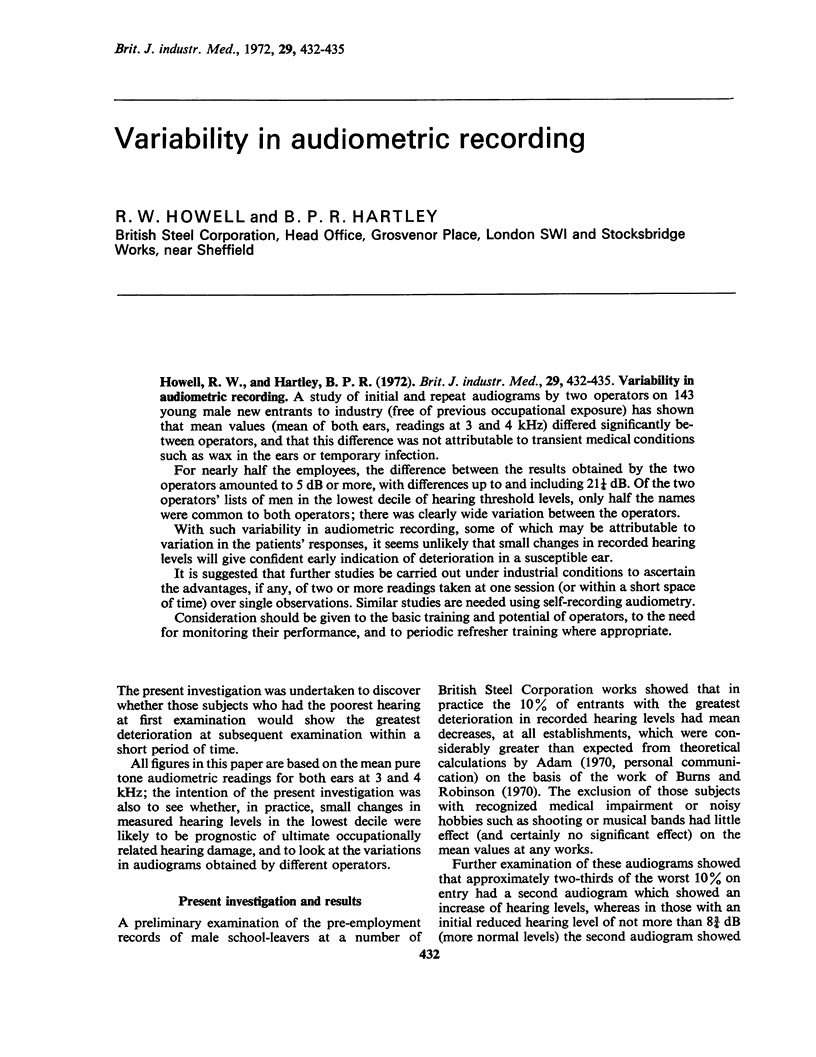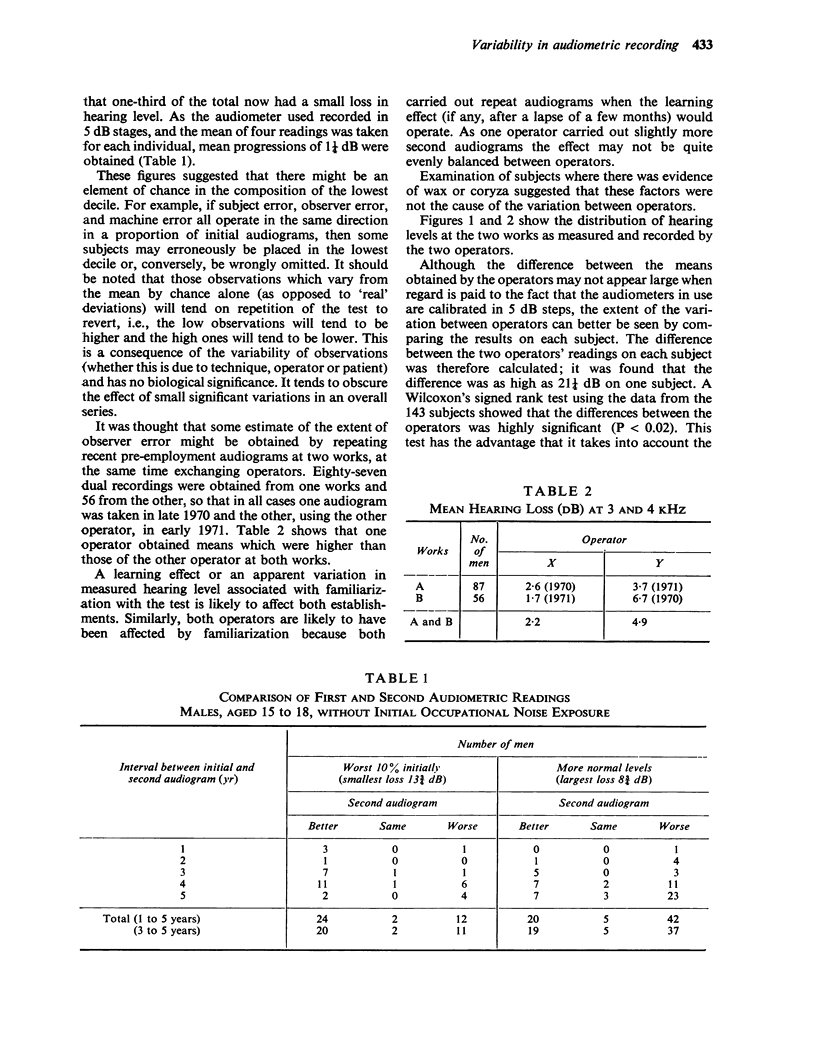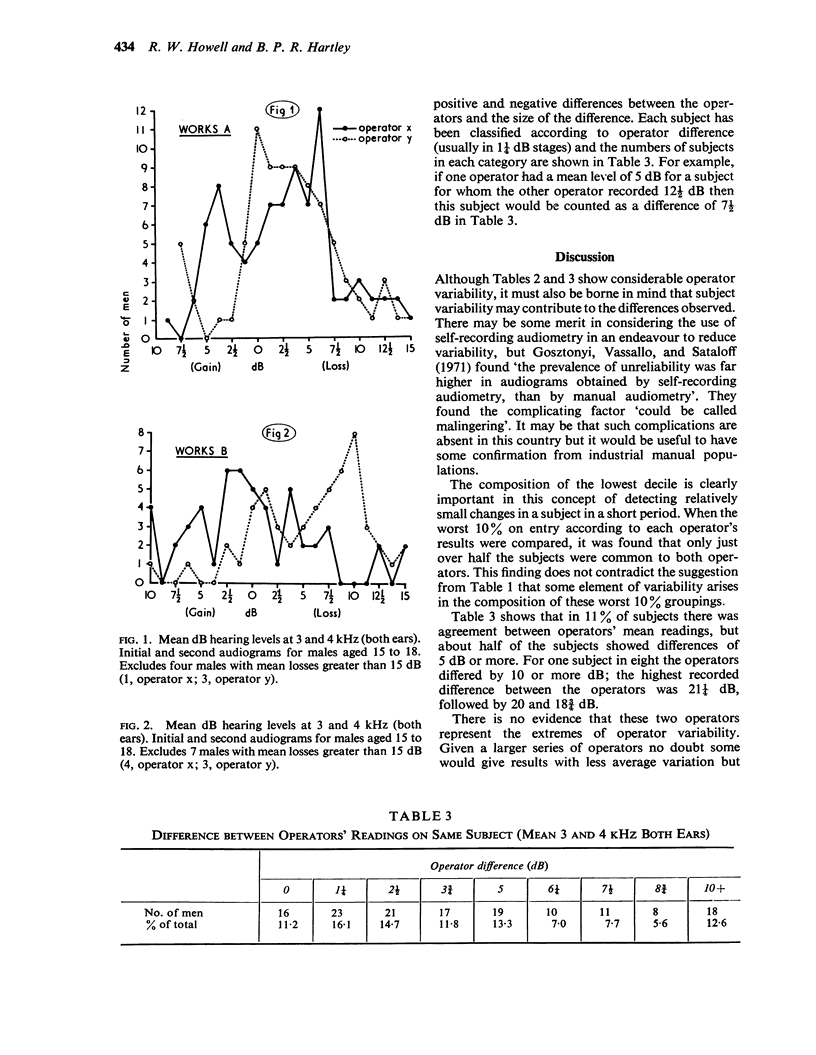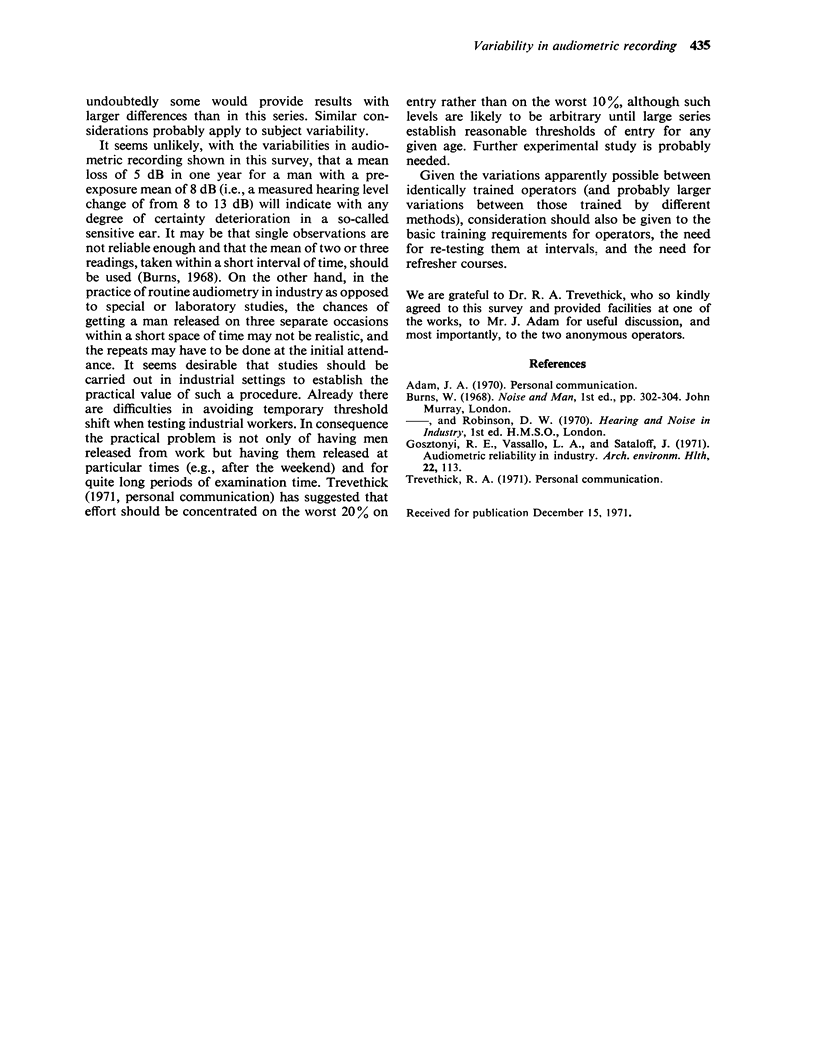Abstract
Howell, R. W., and Hartley, B. P. R. (1972).Brit. J. industr. Med.,29, 432-435. Variability in audiometric recording. A study of initial and repeat audiograms by two operators on 143 young male new entrants to industry (free of previous occupational exposure) has shown that mean values (mean of both ears, readings at 3 and 4 kHz) differed significantly between operators, and that this difference was not attributable to transient medical conditions such as wax in the ears or temporary infection.
For nearly half the employees, the difference between the results obtained by the two operators amounted to 5 dB or more, with differences up to and including 21¼ dB. Of the two operators' lists of men in the lowest decile of hearing threshold levels, only half the names were common to both operators; there was clearly wide variation between the operators.
With such variability in audiometric recording, some of which may be attributable to variation in the patients' responses, it seems unlikely that small changes in recorded hearing levels will give confident early indication of deterioration in a susceptible ear.
It is suggested that further studies be carried out under industrial conditions to ascertain the advantages, if any, of two or more readings taken at one session (or within a short space of time) over single observations. Similar studies are needed using self-recording audiometry.
Consideration should be given to the basic training and potential of operators, to the need for monitoring their performance, and to periodic refresher training where appropriate.
Full text
PDF



Selected References
These references are in PubMed. This may not be the complete list of references from this article.
- Gosztonyi R. E., Jr, Vassallo L. A., Sataloff J. Audiometric reliability in industry. Arch Environ Health. 1971 Jan;22(1):113–118. doi: 10.1080/00039896.1971.10665821. [DOI] [PubMed] [Google Scholar]



